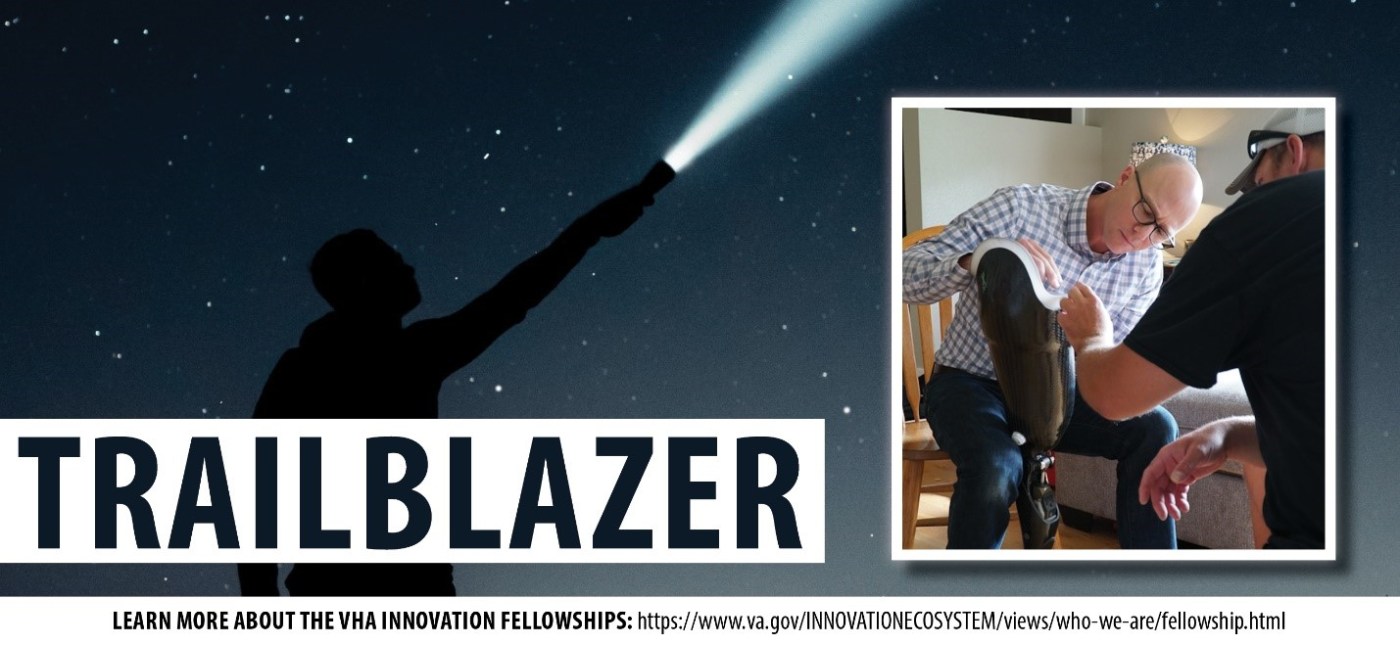Eli Kaufman needed a custom-modified cargo van equipped with a purpose-built prosthetics workshop. To be more precise, the Mobile Prosthetic and Orthotic Care (MoPOC) program that Kaufman is helping to build into an enterprise-wide practice across the Veterans Health Administration (VHA) needed several of these vehicles. Kaufman and his team were creating a team of MoPOC units that travel to provide VHA’s world-class care at VA Community-Based Outpatient Clinics (CBOCs) and in Veterans’ homes. However, vehicle acquisition at VA isn’t always easy.
Vehicles are essential to MoPOC. Originally piloted as Mobile Orthotic & Prosthetic Services (Mobile OPS), MoPOC is a way for Veterans to receive their prosthetic care at or closer to home, reducing or eliminating miles of travel in varying conditions for appointments at their medical center. It was born when Kaufman, who is the research prosthetist at the Center for Limb Loss and MoBility (CLiMB) at the VA Puget Sound Health Care System, and his colleagues observed prosthetic limbs sitting on shelves for months because, for a variety of reasons, Veterans couldn’t get to their appointments.
“It’s not like you go to a car lot and say ‘I want that one. I’ll take that home today.’ There’s many, many steps involved,” Kaufman, an Entrepreneur in Residence in the VHA Innovation Ecosystem (VHA IE) Fellowship Program, told Suzanne Shirley in the most recent edition of VHA IE’s Fellowship Friday interview series.
This is where the VHA IE Fellowship was able to help, Kaufman says. As a VHA IE Entrepreneur in Residence, Kaufman receives support, time, and guidance in developing the rapidly expanding MoPOC program. The Fellowship Program provides Kaufman and the rest of the MoPOC team with the time and space needed to build MoPOC nationwide – but in this case it was the built-in network of innovators, leaders, and Veterans who aided the innovator. While working with the contracting team on vehicle acquisitions, he found several parts of the process already in motion and progressing quickly thanks to the Fellowship Program’s support.
“There’s people working behind the scenes that I didn’t even know are working for us… It’s that kind of thing that the Fellowship helps to promote and ultimately will be the key to the success of the program,” Kaufman said.
The team piloted a mobile version of a prosthetic lab that fits in a standard car and allowed Veterans to receive their new prosthetic devices, have them properly fit, and engage with a prosthetist much closer to home, or in many cases, at home. Launched at the VA Puget Sound Health Care System and supported through the VHA Innovators Network Spark-Seed-Spread Innovation Investment Program, the project was highly successful in getting Veterans – some who had been lacking in care for years – the artificial limb care that they needed. Not only were Veterans happy with the service, but it saved VA on costs compared to contracted providers and meant far less travel for Veterans.
“The truth is our solution isn’t completely outside the box, but if a person is having a difficult time coming to us, let’s bring the care to them,” Kaufman noted.
Now known as MoPOC, the program is going nationwide through a partnership between the VHA Office of Rural Health and Prosthetics & Sensory Aids Services, with additional support from VHA IE. In the future, MoPOC aims to ensure access to prosthetic care to Veterans across the country, bringing much needed care to rural communities and providing greater access to prosthetic care for all Veterans.
It is work like this that the VHA IE Fellowship Program was created for, giving innovators like Kaufman the chance to truly build and expand their ideas in the service of Veterans.
“It really is an ecosystem. People with all sorts of different backgrounds collaborating and finding a way to support one another in all sorts of different projects,” said Kaufman.
Allison Amrhein is the director of operations for the VHA Innovators Network and communications lead for the VHA Innovation Ecosystem.
Topics in this story
More Stories
Veteran Byron Potier weighed almost 300 pounds and was tired and lethargic. He was the perfect candidate for gastric sleeve surgery.
How much do you know about VA care, benefits and services? Don’t miss out on what you've earned—check out the "2025 VA Federal Benefits Guide for Veterans, Dependents, Survivors, and Caregivers" handbook to learn more.
Feeling stressed? Your breath can help you relax and focus. Take 3 minutes to reset and prioritize your well being for this week's #LiveWholeHealth practice.






